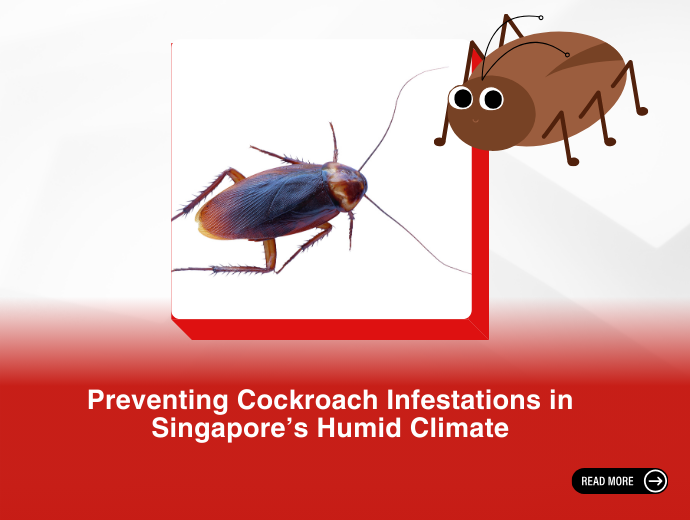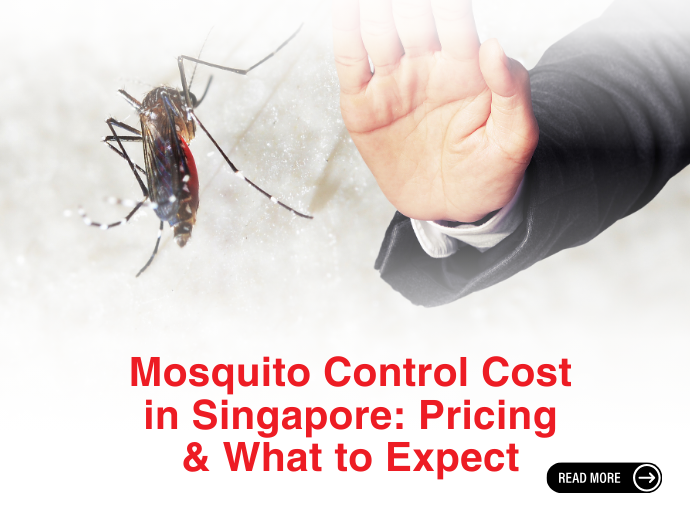Ah, Singapore! The majestic Marina Bay Sands, the bustling streets of Orchard Road, and the serene nature of MacRitchie Reservoir. Yet, amidst our urban jungle and iconic skylines, there's a tiny creature that occasionally disrupts our peace: the mosquito. While it may seem trivial amidst our daily hustle, it's imperative to address the health concerns they bring. With mosquito-borne diseases on the rise, the time to arm ourselves with knowledge and take preventive measures is now.
Mosquito-Borne Diseases in Singapore
Dengue Fever
Dengue fever, marked by sudden high fever and severe joint pains, is unfortunately a familiar ailment here. The recent statistics from NEA show a concerning rise in cases, with hotspots in areas like Tampines and Jurong West (source: NEA).
Zika Virus
Although not as common as dengue, Zika has made headlines. Particularly dangerous for pregnant women, it has been linked to birth defects. Singapore had its encounter with Zika a few years ago, especially in areas like Aljunied.
Chikungunya
Chikungunya, similar in symptoms to dengue, though typically less severe, has also been reported in Singapore. Though not as prevalent, it's a reminder that we can't let our guard down.
Causes and Breeding Grounds
These diseases spread through mosquito bites. Singapore's high humidity makes it a playground for Aedes mosquitoes, the primary culprits. They thrive in stagnant water, which can be found in flower pots, blocked drains, and unused containers. HDB void decks, construction sites, and even the beautifully landscaped gardens in our neighborhoods can be unsuspecting breeding grounds.
Symptoms and Treatment
The first signs usually include a sudden fever, joint pain, and rash. If you or anyone you know exhibit these symptoms, it's essential to consult a doctor promptly. Thankfully, Singapore boasts some top-tier medical facilities like Tan Tock Seng Hospital and KK Women's and Children's Hospital, offering dedicated care for such diseases.
Mosquito Control in Singapore
As the saying goes, prevention is better than cure. Regularly check and remove stagnant water, use mosquito control nets, and apply repellents. Investing in window screens and using mosquito coils or electric repellents can also keep these pests at bay.
Community involvement plays a vital role. Grassroots organizations often conduct checks and awareness programs. We, as residents, can contribute by reporting potential breeding grounds and participating in community cleanup efforts.
Frustrated by the never-ending search for mosquito control in Singapore? Check out eco-friendly pest control in Singapore
Government Initiatives and Public Awareness
When it comes to mosquito control in Singapore, the National Environment Agency (NEA) has been at the forefront with proactive strategies. The Gravitrap System is just one of their innovative approaches. Regular inspections and public awareness campaigns, such as the "Do the Mozzie Wipeout", underscore the importance of community involvement and vigilance.
Beyond these measures, collaboration with schools and community canters has ensured that our younger generation is not left in the dark. They, too, are educated about these diseases, amplifying the prevention efforts across all age groups and making it a truly community-wide endeavor.
Conclusion
The battle against mosquito-borne diseases in Singapore is a collective effort. Whether it's a resident checking their home for stagnant water or the NEA officials conducting their inspections, every action counts. Our unique blend of cultures and traditions already showcases unity in diversity.
By staying informed and proactive, we can ensure our neighborhoods remain safe. Let's not just be united in our celebrations but also in our efforts to combat these diseases. Let's cherish our beautiful city-state by keeping it disease-free, ensuring that both residents and visitors can enjoy all that Singapore has to offer without fear.
Here is another article you may find interesting: Pest Control for Food and Beverage Establishments: Compliance and Best Practices
.jpg)

.png)
